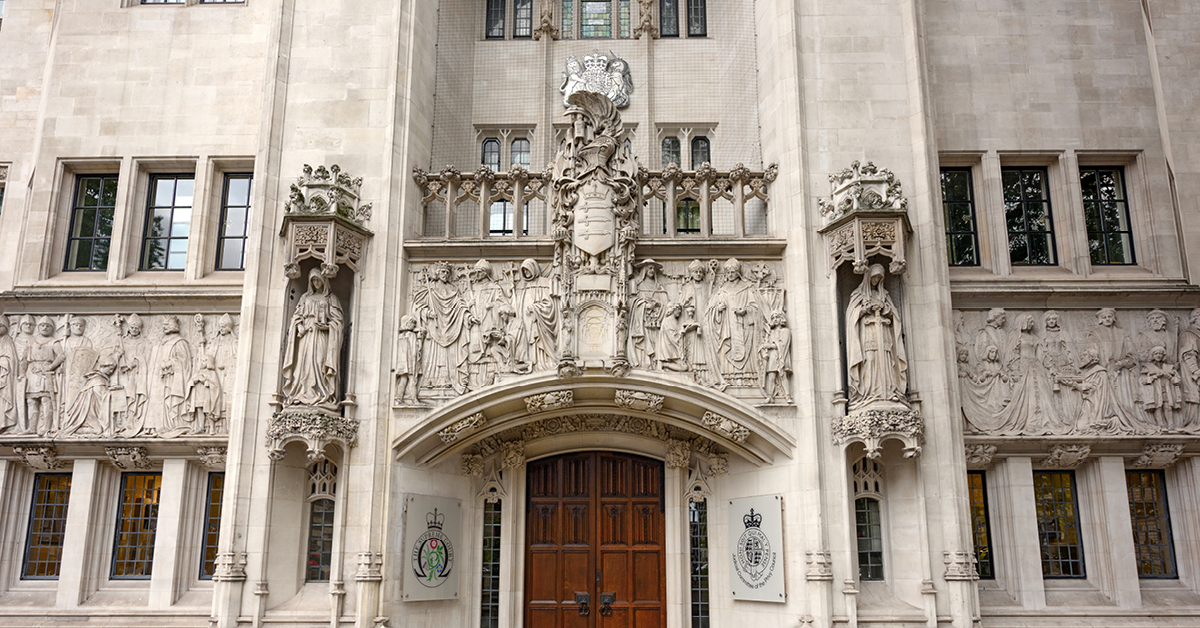On 8 November 2023, Mr Justice Green heard an application by the claimants in the G4S litigation in relation to the defendant’s claim to withhold certain documents on the grounds of privilege. The claimants argued the documents were covered by the shareholder principle and were therefore subject to inspection by the relevant parties.
The application was dismissed, as outlined by associate Francesca Bugg. The full judgment can be found here.
What is the shareholder principle?
The shareholder principle refers to the principle that a company cannot claim privilege against its own shareholders save where the documents came into existence in contemplation or for the dominant purpose of proceedings between the company and its shareholders.
Background to claims
The claims are bought under section 90A and Schedule 10A of the Financial Services and Markets Act 2000 (“FSMA”). The claimants were or claim to have been shareholders in the defendant, G4S Limited. At the material time, G4S was a listed company on the London Stock Exchange and Nasdaq Copenhagen. The company is now delisted and privately owned.
The Ministry of Justice was a customer of G4S via two of its subsidiaries, G4S Care and Justice Services (UK) Limited (“G4SCJS”) and G4S Integrated Services (UK) Limited under the following contracts:
- contracts relating to the electronic tagging of prisoners (“EM contracts”), and
- contracts with Her Majesty’s Courts and Tribunals Service for facilities management in the courts (“FM contracts”).
In 2013 and 2014, it was announced that G4S had been overcharging the government on the contracts, and G4S reached a £108.9m settlement with the government in March 2014.
Two other claims that began in 2020 and 2021 cover similar ground but involve many more claimants. The claimants allege that from 2005 onwards, G4SCJS perpetrated fraud on the government by providing false financial models to hide the true profits realised under the EM contracts.
The application
Most of the claimants held their shares via custodians and sub-custodians and pursued the applications on the basis of being the ‘ultimate beneficial owners’, as that term was used in Mr Justice Hildyard’s judgment in Various Claimants v Tesco plc [2020] Bus LR 25. However, three claimants had CREST (Certificateless Registry for Electronic Share Transfer) accounts and pursued this application as the legal and registered shareholders of G4S shares, although they were holders of G4S shares at different times.
The claimants relied heavily on Sharp v Blank [2015] EWHC 2681 (Ch) and Woodhouse and Co (Limited) v Woodhouse [1914] 30 TLR 559, both of which were concerned with the exception to the shareholder principle.
Mr Justice Green noted it was a little surprising such an accepted doctrine had not received more consideration in the authorities. The claimants also relied on a Bermuda first instance authority that the defendant accepted was directly on point (Oasis Investment II Master Fund Limited and ors v Jardine Strategic Holdings Limited and ors [2023] SC (Bda) 8 (Civ)) and James-Bowen v Commissioner of Police of the Metropolis [2018] 1 WLR 4021, which was accepted as an example of joint interest privilege.
Mr Justice Green acknowledged that Woodhouse, as a Court of Appeal decision, would be binding on him, as Mr Justice Nugee had found it was on him in Sharp v Blank, but said it was a curiously insubstantial case on which to found this doctrine.
The defendants submitted that the claimant’s application went further than the scope of the above cases as it sought to apply the principle to:
(i) litigants who are at best former shareholders
(ii) litigants who never had legal title to the shares in the relevant company, and
(iii) all forms of privilege, including legal advice privilege, litigation privilege and without prejudice privilege.
Additionally, the defendants had three main arguments against the application:
- The exception in Sharp v Blank (that shareholders can see their company’s privileged documents) is anomalous and should no longer be followed;
- Sharp v Blank can only apply to (a) members of the company, and the claimants are not now and never were members of G4S and (b) in respect of legal advice privilege (that is, legal advice paid for out of company funds and not extending to litigation privilege or without prejudice privilege); and
- The case management consequences of permitting the claimants’ application at this very late stage on any order being made.
The claimants argued that the shareholder principle was well established on the authorities and that listed shares are now held in uncertificated form through CREST. As such, it would be odd if this meant the principle could not apply.
The defendant argued that both cases relied upon by the claimants did not have as their ratio the principle that the claimants sought to rely on. Instead, those claims involved exceptions to the principle.
Separately, the defendant emphasised the importance of privilege, stating it was a fundamental right and the court should be cautious in making inroads into it. The defendant’s counsel quoted from Lord Taylor in R v Derby Magistrates’ Court [1996] AC 487 at page 507, where he said legal professional privilege is “much more than an ordinary rule of evidence, limited in its application to the facts of a particular case. It is a fundamental condition on which the administration of justice as a whole rests.”
Reasoning for dismissal
Despite having doubts about applying the principle as a first instance judge, Mr Justice Green could not say that the principle did not exist after the short submission at the Case Management Conference (CMC). To overturn or get rid of the principle would require a higher court.
Mr Justice Green’s starting position was that it would be better to err on the side of caution in relation to maintaining privilege unless there is a good reason not to. Therefore, on whether to extend the principle to ultimate beneficial owners, he found against the claimants on the basis that there is no authority where non-registered shareholders have been held entitled to a company’s privileged documents. He also said the rights under the articles that govern the relationship between shareholders and the company are limited to registered shareholders and can only be enforced by them. The extension of rights under s90A and schedule 10A FSMA are the creature of statute granted to a certain class of claimants and not limited to shareholders at law.
On whether the rule should apply to litigation privilege or without prejudice privilege, in addition to legal advice privilege, the judge said:
- “As to litigation privilege, I do not see on the authorities that any such limitation has been imposed and I would have ordered that all documents, whether subject to legal advice privilege or litigation privilege, would have to be disclosed under this principle.”
- “In my view, without prejudice privilege is not covered by the rule. It has the complication of a third party being involved and I do not see on any view of the authorities that it has been extended to such a privilege.”
The final issue was whether the documents should be disclosed to the three claimants who were the registered owners of the shares.
Mr Justice Green stated the practical issues, in particular, the late stage at which the application was brought, meant it would not be reasonable or proportionate to order the disclosure of the documents as there would be severe case management implications. It was not evident how the claimants’ lawyers would be able to compartmentalise the documents for the three claimants from the other claimants, and it was not obvious how this would work in practice at trial.
Conclusions
Mr Justice Green expressed frustration that despite the defendant asserting privilege over 20 months ago, the claimants had waited until now to raise it. There appeared to be little justification for cutting it so close to trial, with the application only being filed on 30 October 2023. Had the application been bought at the first CMC, directions could have been appropriately made.
The discussion around the shareholder principle and the application of privilege requires further exploration by a higher court. It will be an area of law to watch as the implications could be far-reaching.
Other articles on the G4S litigation can be found here and here.
You can find further information regarding our expertise, experience and team on our Securities Litigation page.
If you require assistance from our team, please contact us.
Subscribe – In order to receive our news straight to your inbox, subscribe here. Our newsletters are sent no more than once a month.






